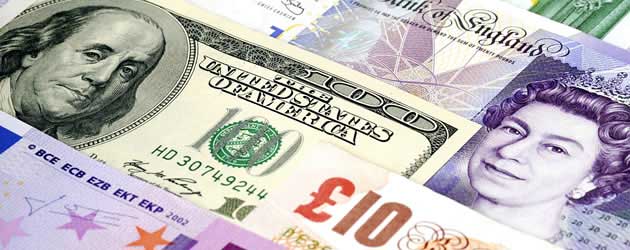Sterling Hits One-Week Low Following Bank of England Announcement
Sterling dipped suddenly this morning against all of the majors following the announcement speech by the Governor of the Bank of England (BoE), Mark Carney. The Governor’s Mansion House Address was previously delayed in the wake of the Grenfell Tower catastrophe and laid to rest any hopes of interest rate rises within the coming months.
Carney said: ‘From my perspective, given the mixed signals on consumer spending and business investment, and given the still subdued domestic inflationary pressures, in particular anaemic wage growth, now is not yet the time to begin that adjustment.’
Dovish BoE News Sends Sterling Crashing Against Euro
Whilst yesterday saw Sterling trading fairly flatly against the Euro, as traders remained hesitant in the wake of blossoming Brexit negotiations, this morning the Pound saw significant losses as a result of Mark Carney’s BoE announcement.
Yesterday’s Brexit talks began somewhat innocuously, but, without the strong mandate that was sought when the snap election was called, many traders remain sceptical that the government will be able to clinch a solid deal for Britain.
Brexit minister David Davis seemed keen to assuage worries in his statement that the UK was looking for a ‘new, deep and special partnership’ with the EU, but Sterling fluctuations continue to be led by the nose by political uncertainties in the UK.
US Dollar Boosted by Confident Fed Official
Sterling continued yesterday’s droop against the US Dollar this morning as a dovish BoE announcement pushed many traders to sell.
The ‘Greenback’, however, continues to strengthen as a result of hawkish statements from the New York Federal Reserve President William Dudley, who claimed that US wage growth and inflation were both likely to rebound in the medium term.
Dudley commented:
‘Inflation is a little lower than what we would like, but we think that if the labour market continues to tighten, wages will gradually pick up and with that, inflation will gradually get back to 2.0%.’
These comments supported the US Dollar, as they seem to signal that the US central bank is likely to continue its hiking cycle.
Canadian Dollar Climbs against Sterling, US Oil Supplies Cause Concern
Sterling dropped against the Canadian Dollar this morning as Mark Carney announced that rate hikes were unlikely in the coming months.
The ‘Loonie’ itself traded within a fairly tight range on Monday, following last week’s announcement from the Bank of Canada’s (BoC) Deputy Governor Carolyn Wilkins that the central bank would be ready to raise interest rates a fair bit sooner than the market anticipated.
Concern continues to grow in regards to global crude oil prices, as it has been announced that the United States has some 5,946 drilled-but-uncompleted wells. The potential in terms of supply, should the US get things up and running, is staggering, with the 125 new wells within the Permian Basin alone representing a possible 96,000 barrels per day extra to swell the market glut.
William Foiles, an analyst for Bloomberg Intelligence expressed similar apprehensions:
‘Even though rig counts have gone through the roof in the Permian, we really haven’t even felt the full production implications…We’ve only felt 70 percent of the rise in drilling.’
Moody’s Downgrades the Ratings of Australia’s Four Big Banks
The Pound to Australian Dollar exchange rate fell this morning as traders sold in response to the BoE’s announcement that now is not the time for rate hikes.
The ‘Aussie’s positive gains yesterday took some big hits overnight, thanks to a jump in US Dollar strength and credit rating agency Moody’s downgrading Australia’s four big banks due to elevated risks within Australia’s housing sector.
The group acknowledged that ‘risks associated with the housing market have risen sharply in recent years’, labelling the extreme levels of household debt as ‘particularly concerning’.
GBP NZD Lowest since March
Yesterday’s five-day low for Sterling against the New Zealand Dollar was quickly beaten by a huge dip following this morning’s dovish BoE announcement.
The New Zealand Dollar itself had some overnight losses as a result of the strengthening US Dollar, but the most significant catalyst for change today will be the results of the New Zealand dairy auction. Prices have consistently risen as of late; expect a continued rise to send the New Zealand Dollar even higher.


Comments are closed.